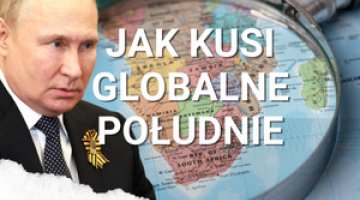Medvedev in Kyiv – no breakthrough in economic negotiations
During President Dmitri Medvedev’s official visit to Kyiv on 17-18 May, a range of treaties were signed, including agreements on the demarcation of the Ukrainian/Russian land border, and joint declarations concerning European security and the conflict in Transnistria. Russia’s agreement on demarcating the border, if it is not linked to any hidden conditions, will be a considerable success for Ukraine, both symbolically (as it emphasises the latter’s sovereignty) and practically (as an argument in discussions with EU concerning visa-free travel).
At the same time, however, the parties did not succeed in reaching an agreement on any of the key economic questions which for some weeks have been the subject of bilateral negotiations and media speculation. This may result from the Ukrainian side’s clear disinclination to accept principles of cooperation with Russia which would strike directly at the business interests of those Ukrainian oligarchs who are linked to President Viktor Yanukovych and his Party of Regions. At the same time, the Kyiv talks confirmed that in questions of regional and international security, Ukraine is supporting the positions presented by Russia ever more clearly.
Demarcation of the border
On 17 May a session of the Ukrainian/Russian inter-state committee, under the chairmanship of the heads of both states, took place; after this, a treaty on the demarcation (ground marking) of the land border was signed, something which Kiev had hitherto worked for without result. The Ukrainian/Russian border was established in a treaty on the state border signed in 2003 (the delimitation treaty); however, it did not specify a deadline for the demarcation process to begin. For Russia, the delineation of the border, an act which underlined Ukraine’s sovereignty, was hard to accept for symbolic reasons. Until now Moscow had refused to start work on demarcation, linking it with concessions from Ukraine regarding the delimitation of the marine section of the border in the Azov Sea and the Kerch Straits. By the time of this latest visit, the two parties had not reached any agreement on this question; however, it cannot be ruled out that in exchange for Moscow’s approval of the demarcation, Ukraine could have made certain concessions regarding the line of the marine frontier. The treaty’s signature may be considered a success for Ukraine, which opens up the way to a final settlement of its other border questions (recently a demarcation of the border with Moldova was begun, and the beginning of work on the border with Belarus was announced). The delay in marking out Ukraine’s state borders has often been raised by EU representatives as one of the arguments against giving Ukrainian citizens visa-free travel.
Economic cooperation
Negotiations concerning full-scale economic cooperation are currently underway. Despite earlier speculation, none of the important agreements which Russia has been pressing for were signed during Medvedev’s visit. During the joint press conference, President Yanukovych even suggested that it would be necessary to slow down the pace of the negotiations between Ukraine and Russia.
In the near future, it seems likely that treaties will be signed on cooperation in the fields of the aviation industry and delivering nuclear fuel to Ukrainian reactors. Ukraine will also probably agree to Russia’s building and financing two blocks of the Khmielnitsky Nuclear Power Plant; the agreement cooperation agreement concluded during the visit between Ukreksinbank and the Russian bank VTB opens the way for a Russian loan to Ukraine. It seems, however, that Ukraine is unlikely to sign those agreements proposed by Russia which would hurt the interests of Ukrainian business linked with Yanukovych and the Party of Regions, such as an inter-governmental agreement on the principles of gas cooperation and the de facto merger of Naftogaz and Gazprom, will be concluded if they violate the interests of Ukrainian business linked with Yanukovych and the Party of Regions.
The security sphere
Both presidents also signed three joint declarations: on European security, on the security of the Black Sea region, and also on resolving the conflict in Transnistria. This indicates that the Ukrainian government is willing to increase cooperation with Russia in the security sphere. Ukraine declared that it would ‘support the consideration’ in an international forum of Medvedev’s proposal to create a joint security space covering all the states belonging to the Euro-Atlantic region, with the confirmation of a guarantee of security for those countries which have given up nuclear weapons. Both states declared their fundamental concurrence of views on these matters. An expansion of cooperation between the Black Sea Fleet and the Ukrainian navy was also announced. Moreover, before the end of this week Russia and Ukraine are to sign an agreement which will officially restore the right of the Russian counter-intelligence to operate on the territory of the Black Sea Fleet base.
Agreements on Russian/Ukrainian cooperation to use the Russian navigational system GLONASS and on cooperation between the ministers of culture and education were also signed during Medvedev’s visit; their details are not yet known. On 21 May Ukraine’s minister of foreign affairs is supposed to present parliament with a report on this matter.
Conclusions
This meeting of both presidents, the seventh such in the last three months, testifies that relations between Ukraine and Russia are growing ever closer. Yanukovych’s team is ready to make concessions in areas which it does not consider as key to its interests, such as support for Russia’s proposal for a new European security system, or earlier, extending the stationing of the Black Sea Fleet. As a result, the Ukrainian government’s extreme pragmatism has led to the clear evolution of Kyiv’s position in questions of regional and international security in a direction concurrent with Russia’s interests.
At the same time, it seems that Yanukovych and the Party of Regions will defend the interests of Ukrainian business (which are seen as being their own interests as well) in the face of the pressure they expect from Russia. The slowdown in negotiations concerning economic cooperation is proof of this. By signing the ‘gas for fleet’ treaty in April (which reduced the gas price in exchange for consent to extend the Black Sea Fleet’s stationing in Crimea for a further 25 years), Kyiv has achieved its main goal, which was to limit the budget deficit and support its chemical and metallurgical industries.
More Ukrainian/Russian agreements can be expected in the near future, signifying the increased presence of Russian capital in Ukraine. However, the final form of economic relations between Ukraine and Russia is as yet undecided.





